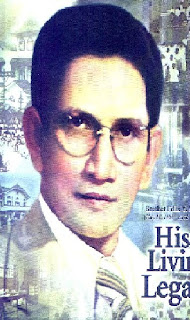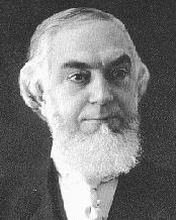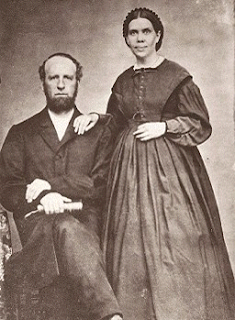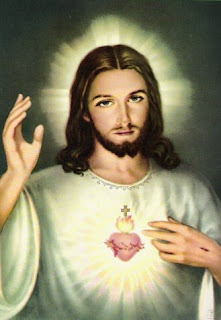There are things that we find tedious to do because we don't know the rationale for doing them. Unfortunately, praying the Rosary happens to be one of those things that have the tendency to be "boring" to those who do not know why they are reciting the same prayers over and over again. To some, it has become nothing more than an act of piety devoid of meaning, hence you hear them rushing their way from the Apostle's Creed to the Hail Holy Queen, as though they simply could not wait to get it over with and do something else more exciting.
Honestly, there are times when I am like them, especially when I have other pressing tasks that can't seem to wait. But afterward, I realize that I have only wasted my 15 minutes, reciting a beautiful prayer but thinking of worldly things at the same time. I realize that if I should hurry, I should just not pray at all-- especially the Rosary, which is a prayer meant for meditation.
So I am actually missing the purification of my heart, mind, and soul when I don't pray the Rosary by heart! What a bummer. I really shouldn't pray the Rosary only when I'm already sleepy. :-P
Some advocates of the Holy Rosary who have undoubtedly grown in their holiness and in their prayer lives state more reasons to pray it as often as we can. Our Lady of Fatima also has her own say about it:
A dear friend of mine once asked, "Our family used to pray the Rosary together, how come we still fell apart?" That time, I didn't know how to answer her. But now it is very clear to me that prayers are not mere words. If our way of life does not correspond with the mysteries we have meditated on, perhaps we have not really meditated at all.
------------------------------------------------
Striving to pray the complete Rosary every week? You might need a support group :) Enroll yourself at THE ROSARY CONFRATERNITY for FREE!
"You should receive confirmation and your certificate in the mail in 2 - 3 weeks (may be longer for international addresses)."
Honestly, there are times when I am like them, especially when I have other pressing tasks that can't seem to wait. But afterward, I realize that I have only wasted my 15 minutes, reciting a beautiful prayer but thinking of worldly things at the same time. I realize that if I should hurry, I should just not pray at all-- especially the Rosary, which is a prayer meant for meditation.
"Meditation is the form of prayer by which the one who prays uses the mind and imagination to consider a truth and uses the will to love it and form resolutions to live it. In this way the heart, mind, and soul of the Christian is formed according to the Gospel examples of the Savior and His First Disciple, His Mother. In God's own time, when this purification of the heart, mind, and soul has advanced sufficiently the Lord may give the grace of contemplative prayer, that special divine insight into the truth which human effort cannot achieve on its own."
-EWTN
So I am actually missing the purification of my heart, mind, and soul when I don't pray the Rosary by heart! What a bummer. I really shouldn't pray the Rosary only when I'm already sleepy. :-P
Some advocates of the Holy Rosary who have undoubtedly grown in their holiness and in their prayer lives state more reasons to pray it as often as we can. Our Lady of Fatima also has her own say about it:
"Among all the devotions approved by the Church none has been so favored by so many miracles as the devotion of the Most Holy Rosary" (Pope Pius IX).
"Say the Rosary every day to obtain peace for the world" (Our Lady of Fátima).
"There is no surer means of calling down God's blessings upon the family . . . than the daily recitation of the Rosary" (Pope Pius XII).
"We do not hesitate to affirm again publicly that we put great confidence in the Holy Rosary for the healing of evils of our times" (Pope Pius XII).
"No one can live continually in sin and continue to say the Rosary: either they will give up sin or they will give up the Rosary" (Bishop Hugh Doyle).
"The Rosary is a magnificent and universal prayer for the needs of the Church, the nations and the entire world" (Pope John XXIII).
"The Rosary is the compendium of the entire Gospel" (Pope Paul VI quoting Pope Pius XII).
"Meditation on the mysteries of the Rosary . . . can be an excellent preparation for the celebration of those same mysteries in the liturgical actions [i.e. the Mass] and can also become a continuing echo thereof" (Pope Paul VI).
"My impression is that the Rosary is of the greatest value not only according to the words of Our Lady at Fátima, but according to the effects of the Rosary one sees throughout history. My impression is that Our Lady wanted to give ordinary people, who might not know how to pray, this simple method of getting closer to God" (Sister Lucia, one of the seers of Fátima).
"How beautiful is the family that recites the Rosary every evening" (Pope John Paul II).
Pope John Paul II has called the Rosary his "favorite prayer," after the Mass and the Liturgy of the Hours.
St. Louis de Montfort warns us against both the ignorant and scholars who regard the Rosary as something of little importance..."the Rosary is a priceless treasure inspired by God."
-EWTN
A dear friend of mine once asked, "Our family used to pray the Rosary together, how come we still fell apart?" That time, I didn't know how to answer her. But now it is very clear to me that prayers are not mere words. If our way of life does not correspond with the mysteries we have meditated on, perhaps we have not really meditated at all.
------------------------------------------------
Striving to pray the complete Rosary every week? You might need a support group :) Enroll yourself at THE ROSARY CONFRATERNITY for FREE!
"You should receive confirmation and your certificate in the mail in 2 - 3 weeks (may be longer for international addresses)."


















